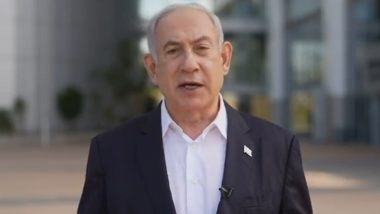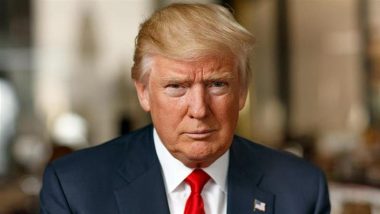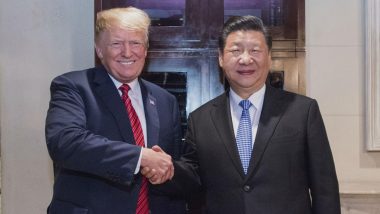Washington, May 15 (AP) The United States escalated its financial pressure on Iran today by slapping terror sanctions on the head of its central bank and barring anyone around the world from doing business with him, underscoring President Donald Trump's hard line after his withdrawal from the Iranian nuclear accord upset European allies.
Valiollah Seif, the governor of the Iranian central bank, was named a "specially designated global terrorist" along with another senior official, Ali Tarzali, who works in the central bank's international division.
The Treasury Department accused the men of secretly funneling millions of dollars through an Iraqi bank to help Hezbollah, the militant network that the U.S. considers a terrorist group.
Although the sanctions do not technically extend to the central bank itself, they could significantly increase Iran's isolation from the global financial system. Seif, whose role is equivalent to the Federal Reserve chairman in the U.S., oversees major financial decisions in Iran. Any transactions that involve his signature could potentially run afoul of the sanctions, creating a strong deterrent to foreign governments or businesses considering transactions involving Iran's central bank.
"The United States will not permit Iran's increasingly brazen abuse of the international financial system," Treasury Secretary Steven Mnuchin said. "The global community must remain vigilant against Iran's deceptive efforts to provide financial support to its terrorist proxies."
The moves come as Trump's administration, after deeming the 2015 nuclear deal insufficiently tough on Iran, seeks to construct a global coalition to place enough pressure on Tehran that it comes back to the negotiating table to strike a "better deal."
The sanctions targeting Iran's central bank executives are some of the first actions by Trump's administration since pulling out of the deal to start ramping up that economic pressure.
The sanctions were expected to be followed by additional U.S actions in the coming weeks, as the Trump administration works to dismantle the main banking conduits exploited by Iran and its Revolutionary Guards to convert Iranian rials into euros or dollars. Those Western "hard currencies" could then be used to fund extremist elements, such as in Lebanon and Syria.
There was no immediate comment Tuesday night from Iranian officials. Iranian media initially reported the decision based on reports in the foreign media.
The US sanctions came as Iranian Foreign Minister Mohammad Javad Zarif was meeting in Brussels with the top French, British and German diplomats as the Europeans seek to keep Iran from bailing on the nuclear deal.
The European members of the deal are trying to keep it alive without the U.S. Yet it's unclear that will be workable, because Trump has vowed to punish European companies that continue doing business with Iran despite re-imposed U.S. sanctions.
Typically, when the US punishes individuals with sanctions, it prohibits Americans or U.S. companies from doing business with them. In this case, the U.S. chose to also impose "secondary sanctions," which also apply to non-Americans and non-U.S. companies. That means that anyone, in any country, who does business with Seif or Tarzali could themselves be punished with sanctions, cutting them off from the U.S. financial system.
Seif, a career banker, became the head of Iran's Central Bank in 2013 under President Hassan Rouhani, who shepherded the nuclear deal. Seif frequently visits Washington to attend meetings of the International Monetary Fund.
He has helped guide Iran's economy through the web of previous sanctions placed on that country. In the aftermath of the 2015 international nuclear accord, in which nuclear sanctions on Iran were lifted, Seid was a prominent voice complaining that Iran was still being kept out of the global financial system and not receiving the economic benefits it was promised in exchange for curtailing its nuclear programme.
In a 2016 meeting of the Council on Foreign Relation in Washington, Seif said Iran achieved "almost nothing" from the deal.
The Treasury said that Seif undermined the central bank's credibility by routing millions of dollars from the Quds Force, the expeditionary unit of Iran's hard-line Revolutionary Guards, to al-Bilad Islamic Bank, which is based in Iraq. Those funds were then used to "enrich and support the violent and radical agenda of Hezbollah," Treasury said.
Al-Bilad Islamic Bank and its CEO and chairman, Aras Habib, were also hit with U.S. sanctions, as was Muhammad Qasir, who the Treasury said is a Hezbollah official who has been a "critical conduit" for transferring funds to Hezbollah from the Revolutionary Guards. U.S. officials were reaching out Tuesday to central banks in other countries in the Middle East and Europe to inform them of the sanctions and encourage them to immediately freeze assets the bank has overseas. (AP)
(This is an unedited and auto-generated story from Syndicated News feed, LatestLY Staff may not have modified or edited the content body)













 Quickly
Quickly




















